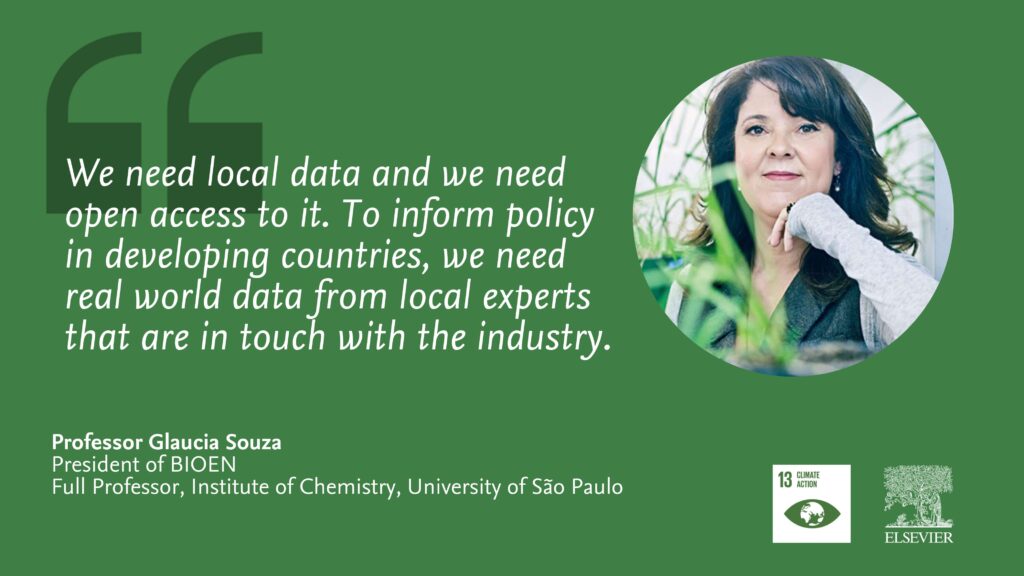New Report : “Pathways to Net Zero: Global South Research in the Transition to Clean Energy”
The ambition of achieving net zero greenhouse gas emissions by 2050 to tackle climate change requires a global effort. The Global South is likely to be disproportionally affected and has an important role to play in realizing this target. This report examines how net zero research in the Global South is contributing to a clean energy future.

Greenhouse gas (GHG) emissions from burning fossil fuels and deforestation are rising, producing global heating that is altering the climate and putting populations and ecosystems at risk. The 2015 Paris Agreement pledged to limit global temperature rise to less than 2°C above pre-industrial levels and achieve net zero emissions, where unavoidable GHG emissions are balanced by removal strategies such as reforestation and carbon capture and storage by 2050.
Many countries are committed to achieving net zero by this date and are investing in net zero research and innovation. In this follow-up to Elsevier’s 2021 report Pathways to Net Zero: The Impact of Clean Energy Research, which presented a broad perspective on the impact of clean energy research on achieving net zero, we focus specifically on the Global South. Arguably, these countries will bear the brunt of the socio-environmental impacts of climate change, while simultaneously seeking ways to increase their level of economic development and the well-being of their citizens. Global South-led research and innovation must, therefore, be positioned to tackle the local environmental, as well as economic, challenges that these communities will face in the future.
This report builds on a bibliometric analysis of over 1.7 million research publications from 2002 to 2021, identified from the Scopus database, a publication set we refer to as NØEnergy research — focusing on understanding how the Global South’s NØEnergy research effort is contributing to the transition to net zero. The report illuminates the crucial contributions that the Global South is making to NØEnergy research in the push towards a clean energy future, and offers an insight into the NØEnergy research profiles of three Global South countries — Brazil, Egypt and Indonesia — to provide national context for understanding how high-level developments in research are being effectively deployed on the ground.
Key Findings
NØEnergy research has been acting as a pathway for research and capacity development in these countries over recent years. Net zero research can be subject to unique challenges in the Global South, including financial barriers and access to equipment or other resources. At the same time, many Global South countries are seeing some of the highest rates of growth in NØEnergy research output, outstripping their Global North counterparts, and are making significant shifts in the composition of their overall research portfolios towards addressing net zero challenges.
Improved parity in South co-publications is necessary for an equitable research ecosystem and to support South-driven solutions to local challenges. Equity in the attribution of researchers’ contributions to collaborative publications, as indicated by lead author positions, has greatly improved over the last decade within South-North collaborations. By 2021, Global South researchers took approximately 50% of lead authorship positions on South-North collaborative publications on average, up from as little as 15% a decade ago. Progress towards parity between Global South and Global North researchers suggests the potential for more effective knowledge transfer between countries with different levels of scientific capacity.
To maximize its effectiveness, net zero research needs to cut across traditional disciplines, embracing ideas, expertise, approaches, and solutions from many different areas. Although South-South collaborations currently amount to less than 10% of the total number of international collaborations in NØEnergy research, in terms of publications, the proportion has increased steadily over the last decade. The multidisciplinarity of South-South collaborations puts the region’s research enterprise in an exceptionally strong position to tackle the complex societal and environmental challenges ahead.
The key findings of this report provide encouragement that NØEnergy research is growing in the Global South and that the research enterprise in these countries will benefit from increased support for South- South-South collaboration, as well as North collaboration with improved levels of parity between researchers.

















